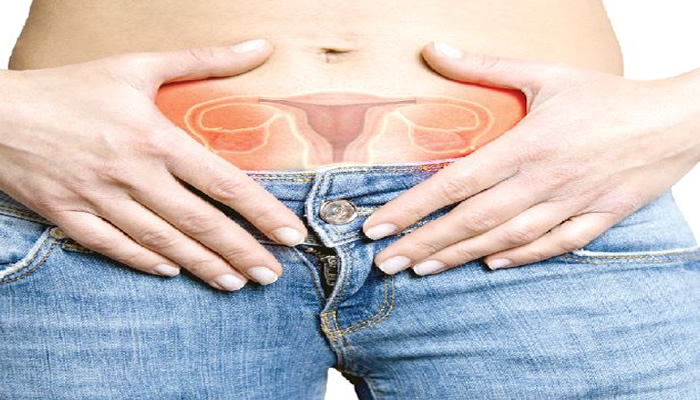Doctors say the sudden onset of painful ovulation can be caused by an unhealthy lifestyle and could be a sign of an underlying medical condition, such as endometriosis or a sexually transmitted infection.
Dr. Itnu Johnson Sogbetun, a UK-based general practitioner specializing in family medicine, also said in an interview with Punch Healthwise that obesity, a sedentary lifestyle, and unhealthy eating habits can lead to painful ovulation. He said that it could cause an increase in
She added that only about 20 to 40 percent of women experience ovulation pain, and that ovulation pain doesn't happen every month.
Ovulation pain, also known as Mittelschmerz, is pelvic pain that some women experience during ovulation, according to the Cleveland Clinic, a nonprofit academic medical center.
It further adds that ovulation is part of the menstrual cycle, during which the ovaries release eggs.
The Mayo Clinic explained that the pain occurs on the side of the ovary that releases eggs, and can alternate from month to month.
They also point out that about 40 percent of women experience pain, which rarely requires medical intervention.
However, the Mayo Clinic noted that people should seek medical attention if their pain becomes severe and is accompanied by nausea and fever.
Dr. Johnson-Sogbetun further elaborates on this by saying, “About 20 percent of women will experience Mittelschmerz, which is the pain experienced when the egg is released during ovulation. It is in the middle of a normal cycle when a woman releases an egg from her ovaries.
20 to 40 percent of women experience pain, but some months it's painful and other months it's pain-free. It doesn't always have to be painful for everyone.
“Lifestyle changes such as less physical activity, unhealthy eating, and being overweight may also be the reason why symptoms become more noticeable.
“Typically, 20 to 40 percent of women may experience ovulation pain during their reproductive period.”
The general practitioner noted that women of reproductive age may experience ovulatory pain, and stressed that ovulatory pain is not related to menstrual pain.
Johnson Sogbetun, also a member of the British Menopause Society and the Primary Care Women's Health Forum, says: “However, ovulation pain or pelvic pain during ovulation may be a sign of other conditions such as endometriosis, sexually transmitted infections or ovarian cysts. It could be.” . Ovarian cyst pain is very similar to ovulation pain, but if the pain is severe and doesn't go away, you should have it checked by a medical professional to make sure you don't miss anything important. ”
A general practitioner advised women who suddenly started having painful ovulation to see a doctor.
The sexual and reproductive health expert added that an unhealthy lifestyle, improper diet and being overweight can cause ovulation pain.
She also said that women with high prostaglandin levels were more likely to experience ovulation pain.
According to a paper from the Endocrine Society, prostaglandins are regulators of the “female reproductive system” and are involved in controlling ovulation, the menstrual cycle, and the induction of labor.
Dr Johnson Sogbetun added: 'Some women have menstrual pain to begin with, this is called primary dysmenorrhea, which is an inflammatory marker that causes pain and discomfort during menstruation. It's related to prostaglandins, which are hormones that can cause pain.'' This can be treated with painkillers.
“When a woman's menstrual pain becomes more and more severe, it is usually a sign that something is wrong and that she should consider things like endometriosis, adenomyosis, uterine fibroids, and endometrial thickening. However, it can also be caused by lifestyle changes. These women should see a specialist to access and receive treatment for these issues.”
To ensure a healthy reproductive lifestyle, Dr. Johnson-Sogbetun advised women to practice safe sex, undergo regular sexual examinations, and maintain a healthy lifestyle.
“If you have any problems, it's better to get them checked out early. Many reproductive health conditions can lead to long-term problems, especially infertility, if left untreated for too long.
“Untreated sexually transmitted infections, endometriosis, and other diseases can lead to infertility problems in the future. You should have regular cervical cancer screenings, breast self-examinations, and screenings. “Everyone over the age of 40 should undergo regular mammography screening,” the doctor said.


